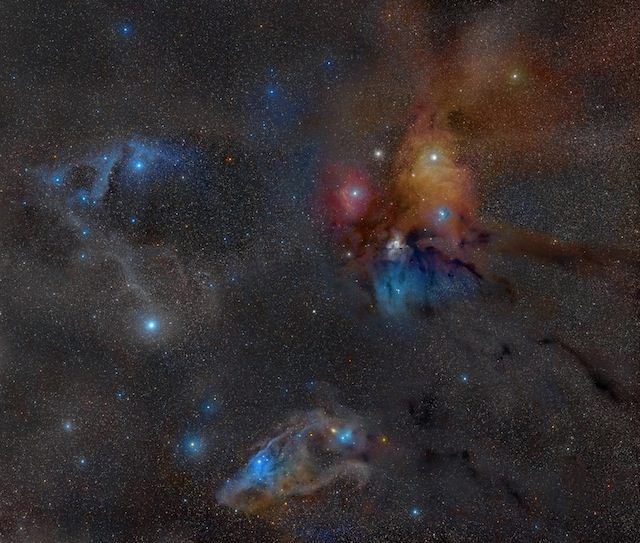FOUND: One Planet, Rocky, Relatively Close, Potentially Habitable

Part of Ophiuchus (Image: Rogelio Bernal Andreo/Wikimedia)
At the rate that astronomers are finding potentially habitable exoplanets, the universe is starting to feel almost neighborly.
A team in Australia just found another such planet, in relatively close proximity. It’s called Wolf 1061c, it’s just 14 light years away, and it’s circling a star that, like our sun, is pretty chill—as in, it’s not so prone to spurting X-ray bursts or death-dealing flares.
The star, a red dwarf, is in the constellation Ophiuchus and is about half as hot as our sun. The astronomers found three planets orbiting it, including Wolf 1061c. Based on their size and mass, they’re likely to be rocky planets, like Earth.
Wolf 1061c is in the star’s habitable zone. But there are some key differences from Earth. It’s much, much closer to its star. (It orbits the star every 18 days, compared to Earth’s 365-day orbit.) And it’s probably tidally locked, meaning that one side of the planet always faces the star.
So, to review: a year lasts 18 days, and there’s a choice between a very cold side of the planet and the very warm side of the planet. But there could be the proper conditions for water to exist. Hm. It’s not ideal, but in the case of a catastrophic, world-ending event that forces all of humanity off of planet Earth, we’ll take it!
Bonus finds: Demon burials, a photo of Robert Johnson
Every day, we highlight one newly lost or found object, curiosity or wonder. Discover something unusual or amazing? Tell us about it! Send your finds to [email protected].









Follow us on Twitter to get the latest on the world's hidden wonders.
Like us on Facebook to get the latest on the world's hidden wonders.
Follow us on Twitter Like us on Facebook